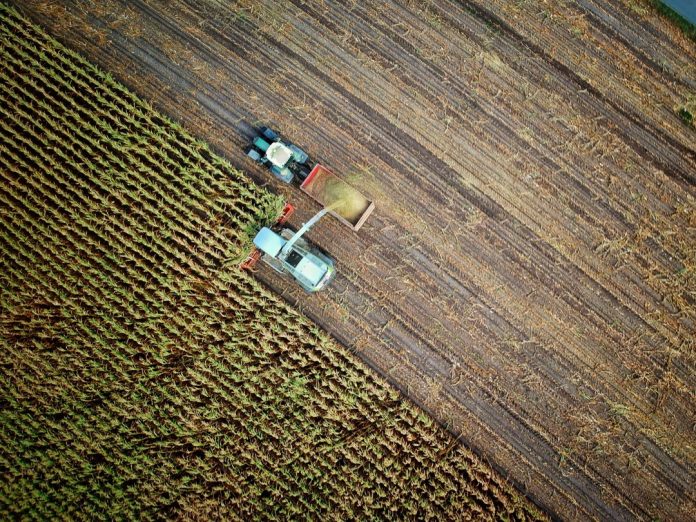In collaboration with the World Bank Group, the Ministry of Agriculture, Animal Industry and Fisheries (MAAIF), will host the DAT Innovation Challenge on November 19th 2019 in Kampala, Uganda.
The Innovation Challenge is designed to discover and link Disruptive Agricultural Technology (DAT) solutions to project needs in Component 1 (Support for Intensification of On-farm production). Winners of the Innovation Challenge will be invited to provide services to The Agriculture Cluster Development Project (ACDP) as Preferred Vendors.
Component 1 of ACOP aims to support the intensification of on-farm production of maize, beans, rice, cassava, and coffee, in 42 districts grouped into 12 clusters across Uganda.
The sub-components are (i) e-voucher program; (ii) training of the recipients of e-voucher; and (iii) development of agricultural inputs markets.
Eligible farm households receive an e-voucher that covers part of the costs involved in the purchase of a menu of inputs [fertilizer, seed, ,on-farm storage, and access to technical and market information through ICT tools, small scale irrigation equipment, including mobile phones).
Themes
Advisory and Information for Agricultural Productivity: This theme covers extension services and Climate Smart Agriculture advisory, as well as the delivery of credible and actionable information in real-time directly to Ugandan farmers to increase productivity. This will help them transition from time, labor, input and resource-intensive practices to more efficient and sustainable planning, production, and management systems.
-Market Linkages: Looks at tools to help Ugandan farmers produce high quality, high yield crops as well as help link them to markets, including digital platforms to sell farm produce.
-Farmer Financial Inclusion: It focuses on innovators, organizations and businesses that link Ugandan farmers to credit and savings products, insurance, and other innovative financial services, enabling them to invest in their farms.
-Data Analytics and Agricultural Intelligence: This challenge is open to solutions that have leveraged data infrastructure, remote sensing and mapping technologies, precision agriculture tools, and computing power to enable data-driven decision-making by policymakers, public agencies, and private service providers in the agriculture sector.
Context
Agriculture remains the major source of livelihood in Uganda. According to the Uganda National Household Survey (UNHS) 2016/17, the bigger proportion of the working population is engaged in agriculture, forestry and fishing (65%). Among the females in the working population, 70% are engaged in agriculture compared to 58% of the males.
Furthermore, 38% of persons in employment were in paid employment with a higher proportion of males (46%) compared to females (28%). The Agricultural sector accounted for the largest share of employment (36%).
The agriculture sector had a total contribution to GDP at current prices of 24.9 percent in the FY 2016/17 compared to 23.7 percent in FY 2015/16. The food crop sub sector registered the highest contribution within the agricultural sector of 13.6 percent in FY 2016/17, an increase from 12.1 percent in FY 2015/16.
Challenge
There are several implementation challenges/issues which have hampered the progress of this ACDP component and are causing delays.
First, the project has not achieved farmer registration and enrolment targets. Second, the e-voucher menu currently does not offer mechanization as a service, which is essential at the land preparation stage, especially for cassava producers.
Third, farmer institutions (such as Rural Producer Organizations) lack the institutional capacity for training individual farmers regarding the use of improved inputs received through the e-voucher
program.
Other steps not implemented, but likely to impact the desired project outcome include, but not limited to: the lack of systematic pest and disease management, poor market access for agricultural produce, as well as inadequate access to soil and weather data for informed decision making.
Solution
MAAIF, through the ACOP, is working on the implementation of OATs to deliver other services along the value-chain. Using OATs, MAAIF further intends to pilot the Agriculture Extension Strategy in the 12 clusters targeting 450,000 households with specific aspects that are critical to
ACDP implementation.
These aspects include: (i) training extension staff; (ii) development of e-extension platforms and a knowledge database; (iii) strengthen research-extension linkages; (iv) develop the tools for quality assurance of extension services and performance evaluation and monitoring of service provision; and (v) establishment of demonstration sites.
Given these issues and recommendations and in trying to improve the project outcomes, the Innovation Challenge will, on one hand, invite ‘individual systems developers, as well as enterprise/solutions development firms with a solution customized to solving any or several of the challenges highlighted. And on the other, the ACOP and business owners to pitch for solutions they could find interesting for uptake and business opportunity respectively. The Innovation Challenge will specifically look out for solutions to the following:
Agricultural technology solutions/firms interested in applying to participate in the Innovation Challenge will be vetted based on their demonstrated technology and capacity. On November 19th, only vetted start-ups will be invited to showcase their solutions in a Shark Tank format structured around delivering the identified solutions above. If deemed to have the capacity for participation by an independent jury of highly qualified professionals, winners will be announced thereafter Winners will receive a certificate as well as incubation and mentorship support, with the opportunity/chance to scale up their solutions through ACDP.








